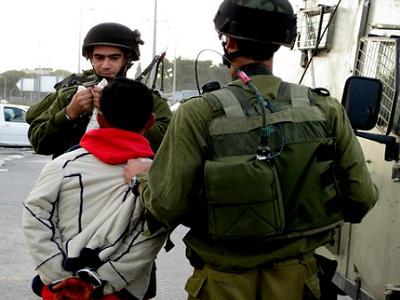
Bayadsi believes Israel has other motives for targeting Palestinian children, in Jerusalem in particular.
“Israel is exploiting their childhood, their innocence,” she says. During questioning, Bayadsi explains, Israeli interrogators mostly hound these children about information on other people, relying on their childish natures to tell all. “They ask them, ‘who was with you, who do you know?’ in the hopes of gathering information on the children’s older siblings or friends. An added reward, of course, is if the children are traumatized by the experience to deter them from participating in “resistance” in the future.
In the case of Hamza, Israel seems to have missed its mark. His slight stature is no indication of his roughhouse character and he has a childlike but inflated self-image. When asked if he was scared at any point during his arrest, he nonchalantly clicks his tongue on the back of his teeth, a nonverbal gesture in Arab culture indicating negation. “Me? No way. They didn’t scare me one bit.”Ayman, whose prison experience is much more extensive, was wary to sit for an interview. Anwar however, offered a glimpse into his brother’s altered personality. “He has changed,” he says. When asked in what way, he pauses for a moment. “He is quieter now, more subdued. And he doesn’t like loud noises.”




